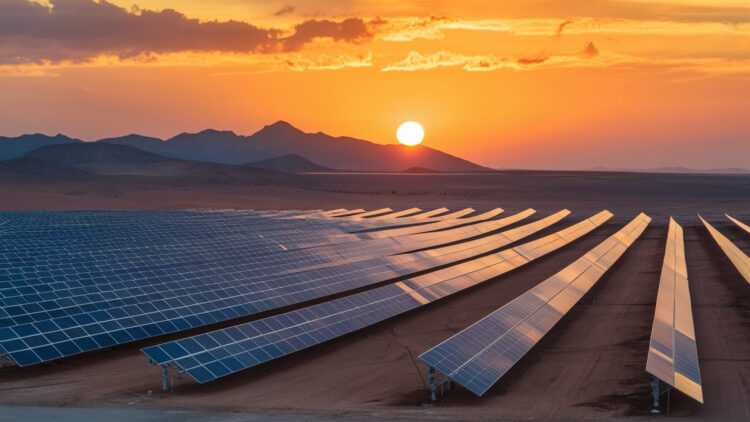Saudi Arabia is currently undergoing a momentous transformation in its energy sector, shifting away from its long-time dependency on fossil fuels towards a future built on utilizing renewable energy sources. As such, its government is making the commitment to invest in clean energy. Moreover, they have set an ambitious target: to establish a solar panel and cell assembly plant with a combined generating capacity of five gigawatts.
Major investments are being made in this eco-friendly assembly plant
Most recently, Desert Technologies, a prominent Saudi company within the renewable energy sector, announced its plans to invest SAR 750 million ($200 million) into constructing the aforementioned plant in Jeddah’s third industrial zone, located along the west coast of the Kingdom.
Teaming up with the Saudi Authority for Industrial Cities and Technology Zones, also known as Modon, Desert Technologies’ goal is to develop an advanced industrial complex that covers a sprawling area of 170,000 square meters in the desert. Here, they aim to incorporate production lines capable of generating two gigawatts of solar panels and three gigawatts of solar cells annually.
The establishment of this facility aligns with Saudi Arabia’s Vision 2030 initiative, which seeks to diversify the country’s economy, decrease local dependence on fossil fuels—particularly oil—and foster sustainability.
Advantages of solar power development for Saudi Arabia’s future
Based on this recent development, it seems like there are many benefits to be reaped once this facility becomes operational. These include:
Environmental sustainability: The shift from fossils to solar energy plays an important role in reducing greenhouse emissions. This assembly plant is an example of Saudi Arabia’s commitment to sustainable development, which can go a long way in improving the quality of life for residents.
Diversification of energy sources: Oil is the primary source of energy in Saudi Arabia. By manufacturing solar energy, the plant can help create a more balanced energy portfolio. This diversification reduces the Kingdom’s reliance on a single energy source as well as enhances energy security.
Technological advancement: Desert Technologies and Modon’s efforts to create a cutting-edge solar assembly plant can encourage innovation and attract international companies and expertise. This could potentially lead to further advancements in technology and efficiency within the country’s renewable energy sector.
Economic growth: The construction and operation of the new plant are expected to stimulate economic activity in the Kingdom, which creates numerous job opportunities. Again, this aligns with the Vision 2030 initiative’s goal of improving local employment rates and developing a skilled workforce within this particular sector.
Leveraging renewable energy will boost local and global competitiveness for the better
As noted by Desert Technologies, the capabilities of this new facility will not only fulfill local energy demands but also strengthen Saudi Arabia’s position in the renewable energy market worldwide.
As other countries increasingly gravitate towards sustainable, efficient solutions, the Kingdom is poised to seize opportunities in non-oil export markets by leveraging its growing expertise in solar technology.
Furthermore, Saudi Arabia is expanding its green initiative by launching various projects aimed at developing facilities for the production of not just solar panels but also wind turbines and battery energy storage systems.
As you can tell, Saudi Arabia’s transition to renewable energy is significant and commendable. With the establishment of Desert Technologies and Modon’s assembly plant, the country is not only addressing local energy needs, but it’s also styling itself as a major player in the global sustainability sector. In turn, it can inspire other nations to invest in eco-friendly solutions. Ultimately, this entire journey aligns with the Vision 2030 initiative, promising a clean, green future for both the Kingdom’s environment and the economy.

